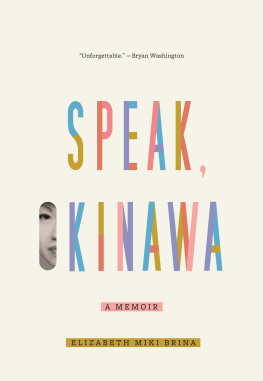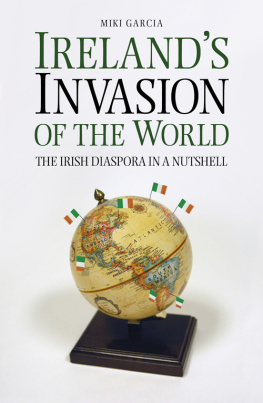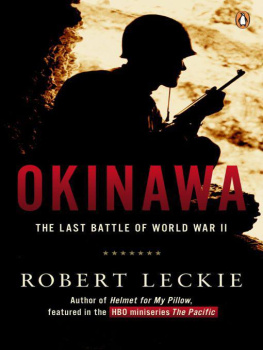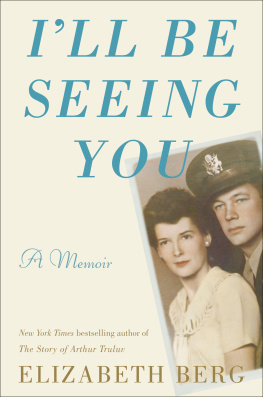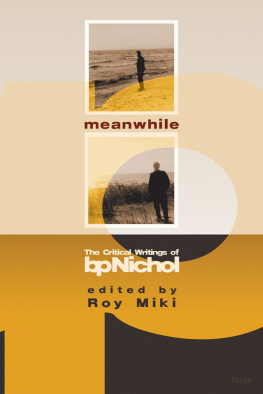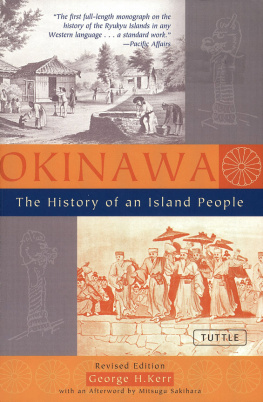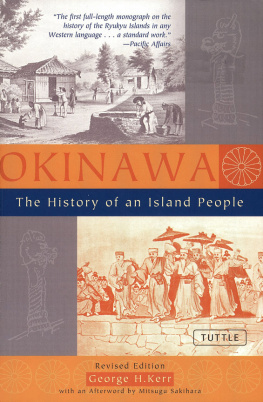Elizabeth Miki Brina - Speak, Okinawa: A Memoir
Here you can read online Elizabeth Miki Brina - Speak, Okinawa: A Memoir full text of the book (entire story) in english for free. Download pdf and epub, get meaning, cover and reviews about this ebook. year: 2021, publisher: Knopf Doubleday Publishing Group, genre: Non-fiction. Description of the work, (preface) as well as reviews are available. Best literature library LitArk.com created for fans of good reading and offers a wide selection of genres:
Romance novel
Science fiction
Adventure
Detective
Science
History
Home and family
Prose
Art
Politics
Computer
Non-fiction
Religion
Business
Children
Humor
Choose a favorite category and find really read worthwhile books. Enjoy immersion in the world of imagination, feel the emotions of the characters or learn something new for yourself, make an fascinating discovery.
- Book:Speak, Okinawa: A Memoir
- Author:
- Publisher:Knopf Doubleday Publishing Group
- Genre:
- Year:2021
- Rating:4 / 5
- Favourites:Add to favourites
- Your mark:
- 80
- 1
- 2
- 3
- 4
- 5
Speak, Okinawa: A Memoir: summary, description and annotation
We offer to read an annotation, description, summary or preface (depends on what the author of the book "Speak, Okinawa: A Memoir" wrote himself). If you haven't found the necessary information about the book — write in the comments, we will try to find it.
Speak, Okinawa: A Memoir — read online for free the complete book (whole text) full work
Below is the text of the book, divided by pages. System saving the place of the last page read, allows you to conveniently read the book "Speak, Okinawa: A Memoir" online for free, without having to search again every time where you left off. Put a bookmark, and you can go to the page where you finished reading at any time.
Font size:
Interval:
Bookmark:
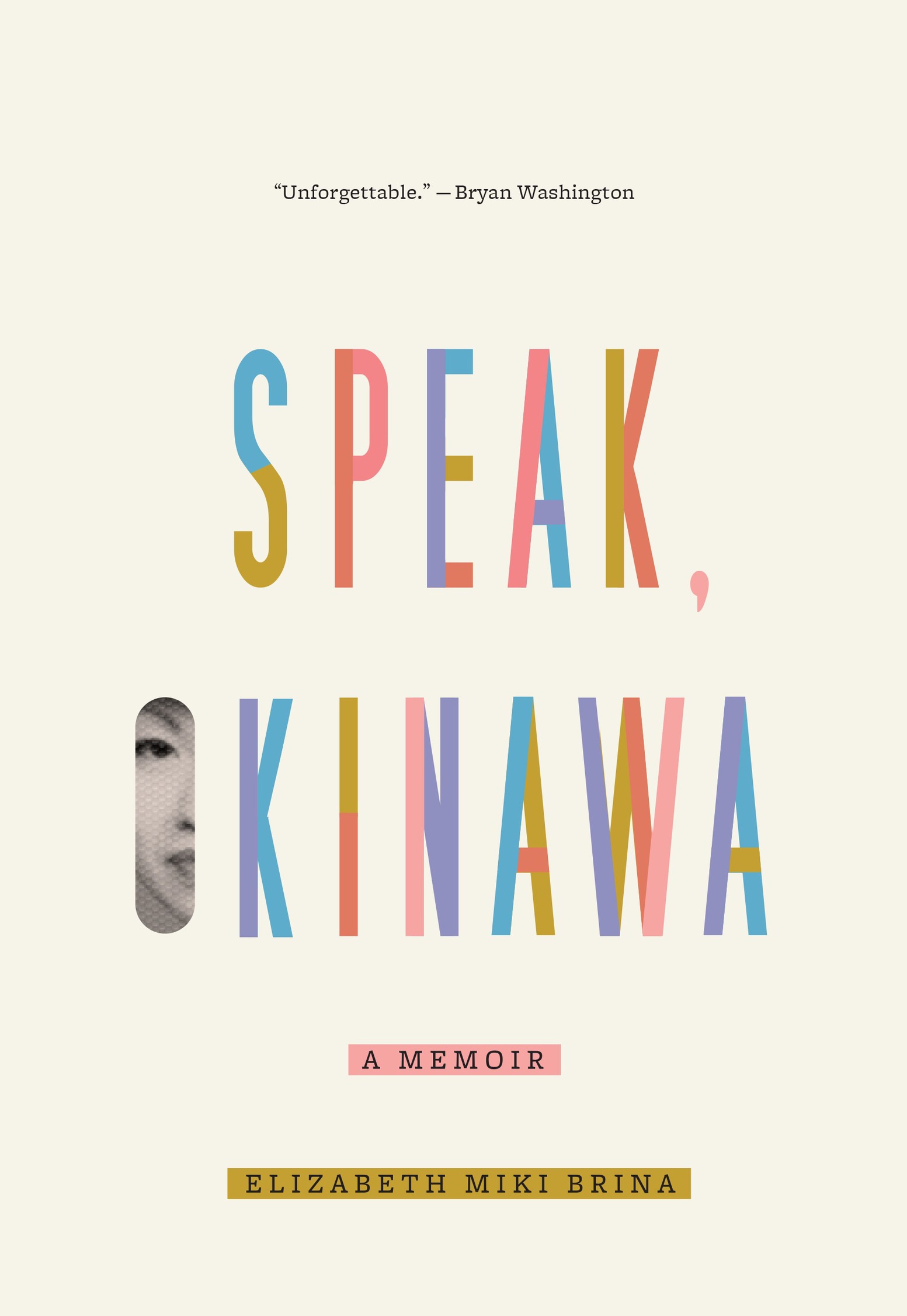
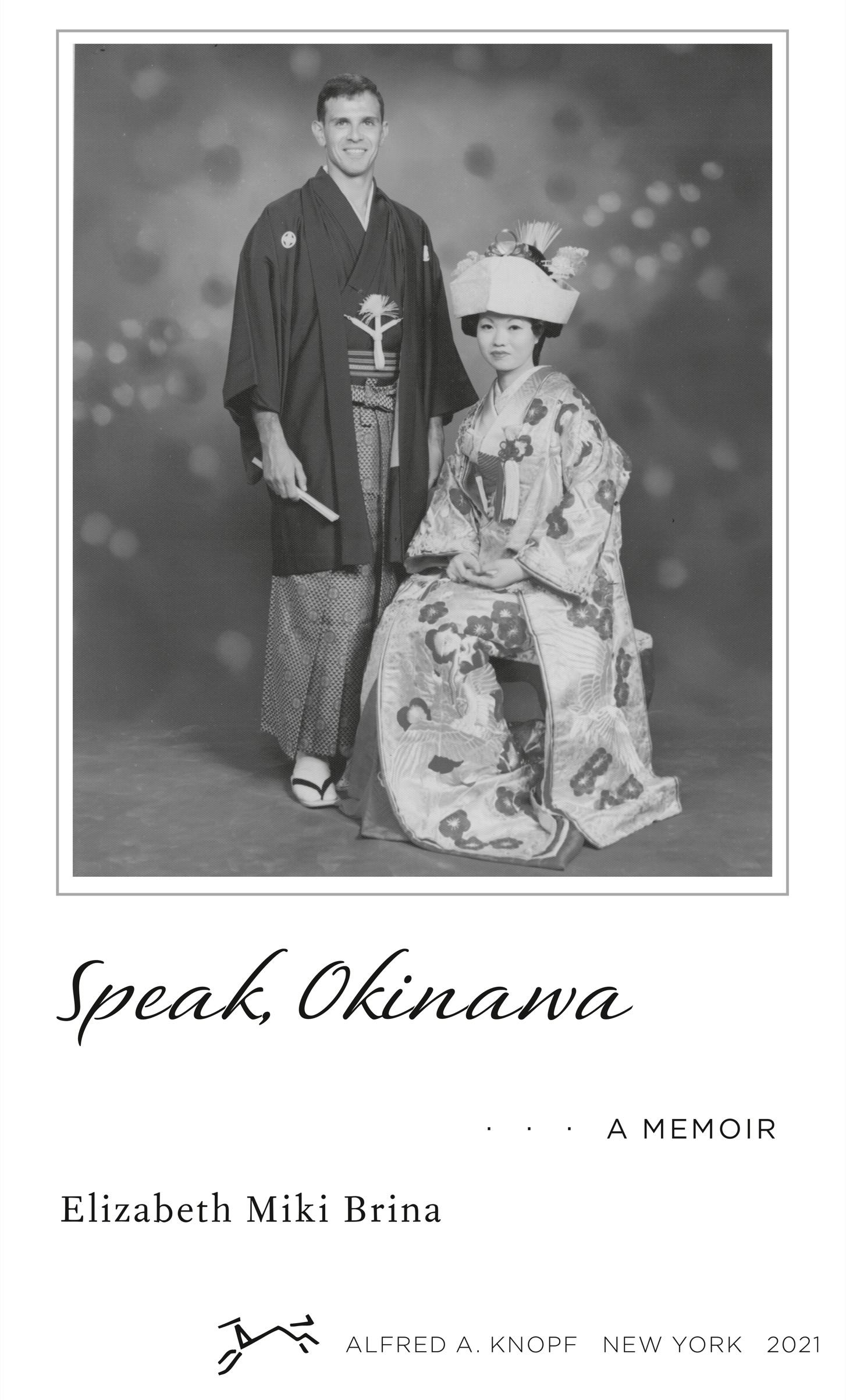
THIS IS A BORZOI BOOK PUBLISHED BY ALFRED A. KNOPF
Copyright 2021 by Elizabeth Miki Brina
All rights reserved. Published in the United States by Alfred A. Knopf, a division of Penguin Random House LLC, New York, and distributed in Canada by Penguin Random House Canada Limited, Toronto.
www.aaknopf.com
Knopf, Borzoi Books, and the colophon are registered trademarks of Penguin Random House LLC.
Portions of this work first appeared, some in slightly different form, in the following publications: Worse Than the Dog in Hyphen Magazine (May 25, 2018); Erizabesu and Miki as Both Names in Crab Fat Magazine (May 2018); One Percent in New Delta Review (May 2018); Without Being Taught in River Teeth (August 9, 2019); and Missing Ghosts in The Sun (September 2020). An earlier version of How They Met won first place in the summer contest issue of So to Speak (2018).
Library of Congress Cataloging-in-Publication Data
Names: Brina, Elizabeth Miki, 1981 author.
Title: Speak, Okinawa : a memoir Elizabeth Miki Brina.
Description: First edition. | New York : Alfred A. Knopf, [2021]
Identifiers: LCCN 2020030710 (print) | LCCN 2020030711 (ebook) | ISBN 9780525657347 (hardcover) | ISBN 9780525657354 (ebook)
Subjects: LCSH: Brina, Elizabeth Miki, 1981 | Brina, Elizabeth Miki, 1981Family. | Brina, Elizabeth Miki, 1981TravelJapan. | Japanese American womenBiography. | Japanese AmericansEthnic identity. | Japanese AmericansBiography. | RyukyuansNew YorkBiography. | Intercountry marriageNew YorkSyracuse. | Okinawa-ken (Japan)Biography
Classification: LCC E184.J3 B75 2021 (print) | LCC E184.J3 (ebook) | DDC 305.48/8956073dc23
LC record available at https://lccn.loc.gov/2020030710
LC ebook record available at https://lccn.loc.gov/2020030711
Ebook ISBN9780525657354
This is a work of nonfiction. Nonetheless, some of the names and personal characteristics of the individuals involved have been changed in order to disguise their identities. Any resulting resemblance to persons living or dead is entirely coincidental and unintentional.
Cover photograph: Authors own / Asata Photography, Kadena
Cover design by Janet Hansen
ep_prh_5.6.1_c0_r0
To my mother and father
I asked my dad why all the great stories were sad ones. Most good stories are mysteries, he said. The author is like a detective trying to get to the bottom of some truth, and happiness is a mystery that can come apart in your hands when you try to unravel it. Sadness, on the other hand, is infinitely more resilient. Scrutiny only adds to its depths and weight.
Bliss Broyard, My Fathers Daughter
My first memory: a dog bites me, on the arm, not hard, but just enough to jar me into consciousness. His name is Shiro, which means white or castle or generation in Japanese, depending on how it is written. Shiro has long white hair, blue eyes, and a grayish-pink nose. I am three years old and he is just above my height, but I can still look him in the eyes. I believe we understand each other, our arrangement. I believe, at age three, Ive earned his subservience. He carries himself proudly. Majestic, like a horse.
So one day, when no one else is around, in the backyard, beside the cinderblock fence, as he lowers his head to drink from a shiny porcelain bowl of water, I try to mount him. He growls and bites me. He doesnt frighten me. He embarrasses me, shames me. And as a small child, an only child, accustomed to endless doting, I wouldnt tolerate these strange emotions. I cry and run to my mother. I dont tell her why Im crying. Im afraid that if I tell her shell scold me worse than the dog did.
Shiro is not to be ridden like a horse.
Shiro was my obaasans dog. Obaa, my grandmother, my mothers mother, found Shiro when he was still a puppy, eyes closed, curled up into a ball, quivering on a pile of garbage.
Often at night, Obaa pushed a cart through the streets of Kadena, a town located on the island of Okinawa, where my mother was born and raised, where I lived for six months when I was three years old. Often at night, when the air thinned and cooled, when the sounds of jets, helicopters, and gunfire coming from the nearby military bases quieted, Obaa pushed a cart through the streets and rummaged through trash heaps, searching for cans and bottles to sell, scraps of wood and metal to reuse. She lived in a house with a rusted tin roof, a rusted tin gate, a floor raised from the mud by cinder blocks, with a single room for cooking, eating, drinking, sleeping, and playing cards, a backyard for bathing and growing sweet potatoes, which she ate for every meal. She lived almost all her life in this house, the house where my mother grew up, the house my grandfather built after their previous house was destroyed during the battle.
The Battle of Okinawa. That is how most of us have heard of Okinawa. But as a battle fought and won, and quickly disregarded. Not as a battle on which our entire contemporary history depends, from which we are still recovering.
It began in April of 1945 and lasted eighty-two days. In Japanese, the battle is referred to as tetsu no ame. In English, the phrase means rain of steel. The Okinawans simply refer to it as Okinawa no Sensho, Okinawan War. Although a conquered nation for many centuriesfirst as a tributary of China, then as a colony of JapanOkinawa had never known such carnage. For eighty-two days, thousands of planes dropped hundreds of thousands of bombs on the island, crushing and burning countless creatures, plants, houses, and buildings. For eighty-two days, hundreds of thousands of troops invaded the island, wielding tanks and guns, throwing grenades, and shooting into hiding places. One hundred forty thousand Okinawans, a third of the population, were killed. That does not account for all those who died of injury, illness, starvation after the battle. That does not account for all those who were forced to commit suicide. Of those killed, some were conscripted soldiers called Boeitai, boys as young as twelve, ordered to fight in the front lines. Some were nurses or members of relief teams called Giyutai, girls as young as fourteen, ordered to cook and tend to the wounded. The rest were civilians. One hundred twenty thousand civilians. Who died in a war they didnt choose, sacrificed to protect Japan, the precious mainland. Many Okinawans believe that those who died had died in vain. Or, rather, what they refer to as a dogs death, inujini.
When news spread that Okinawa would soon be attacked, Obaa was living by herself with her four children, my mothers older brother and older three sisters. My grandfather, conscripted four years earlier, was somewhere in Korea, being held prisoner. When the sirens blared, days before the troops landed, before the ships could be seen from shore, Obaa and her four childrenher son, age four, and her three daughters, ages three, five, and sevengrabbed sacks of potatoes they had been gathering and storing for months. They hid in caves while the ground shook with each explosion, while their island, their home, crumbled and turned to ash. They fled from cave to cave, while their sacks emptied, while their clothes loosened and unraveled from their shrinking bodies. For two years after the war, they wandered from camp to camp, slept in tents or under tarps. They bathed in the ocean. They ate what they could scavenge. They collected rain and drew from low muddy wells for drinking. When my grandfather returned from Korea, he was a different person. He returned, but he was gone.
Font size:
Interval:
Bookmark:
Similar books «Speak, Okinawa: A Memoir»
Look at similar books to Speak, Okinawa: A Memoir. We have selected literature similar in name and meaning in the hope of providing readers with more options to find new, interesting, not yet read works.
Discussion, reviews of the book Speak, Okinawa: A Memoir and just readers' own opinions. Leave your comments, write what you think about the work, its meaning or the main characters. Specify what exactly you liked and what you didn't like, and why you think so.

